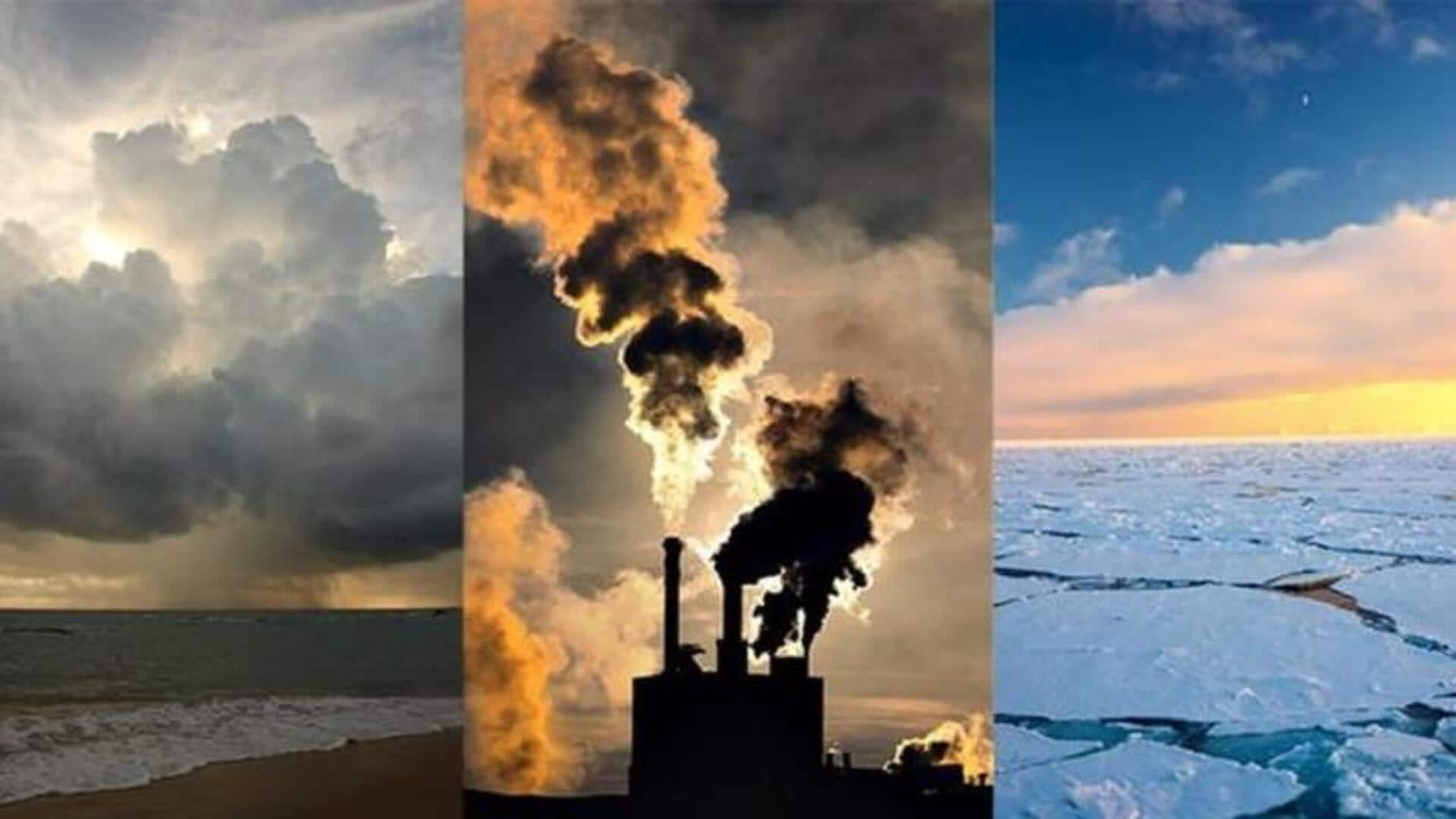
NASA leadership and climate experts to discuss extreme weather events
What's the story
NASA is going to hold a meeting at its Washington headquarters tomorrow to discuss the extreme weather events witnessed in the recent months. This meeting, which will include climate experts and officials from the space agency, aims to assess how NASA's research and its various projects are helping combat the rising problem of climate change.
Participants
A list of the participants of the upcoming meeting
The meeting includes seven participants: Bill Nelson, NASA's Administrator Karen St. Germain, director of NASA's Earth Science Division Kate Calvin, NASA chief scientist and senior climate adviser Gavin Schmidt, director of NASA's Goddard Institute for Space Studies Huy Tran, aeronautics director, NASA's Ames Research Center Carlos Del Castillo, chief of Ocean Ecology Laboratory, NASA Goddard Space Flight Center Tom Wagner, Earth Action's associate director
Objective
The world is seeing record high-temperatures this year
The announcement of NASA's climate change-oriented meeting comes at a time when the world is seeing record-high temperatures. June was the hottest month in the past 174 years, as per both NASA and the National Oceanic and Atmospheric Administration (NOAA). As heatwaves grip Asia, Europe, and North America, scientists expect that 2023 could be the hottest year we have ever seen since records began.
Extreme weather warnings
Here's a look at the soaring temperatures across the world
Extreme weather warnings are being issued across several parts of the world. Beijing has seen 27 consecutive days of temperatures above 35 degrees Celsius, breaking a 23-year-old record. In the US, Phoenix also broke a similar heat record of 49 years, with its 19th consecutive day of temperatures of 43.3 degrees Celsius or higher. Temperatures in Italy's Sicily hit almost 47 degrees on Wednesday.
Weekly
The start of July was the hottest week we've seen
The first week of July, between July 3-10, was officially the hottest on record, per the UN's World Meteorological Organization. What's worse is that global temperatures are expected to soar even higher, likely breaking the current heat records and creating new ones. The world has not seen such record-breaking temperatures since instrumental measurements of air temperatures began in the 1850s.
Cause
What's driving the increase in temperature?
One of the prime causes of the all-time high temperatures we're seeing is El Nino. It is a climate pattern that causes the Pacific Ocean to warm, leading to changes in weather patterns around the world. "A typical El Nino temporarily adds about 0.2 degrees Celsius to average global temperature," said Jeff Knight, manager of climate variability modeling, at Met Office.
Fossil fuel burning
Atmospheric carbon dioxide reached a new high in 2022
Another cause for the temperature spike is rising carbon dioxide emissions. According to NOAA, the average global atmospheric carbon dioxide in 2022 set a new record at 417.06 parts per million (ppm or mg/L). Between 2021 and 2022, there was an increase of 2.13 ppm. This was the 11th year in a row that atmospheric carbon dioxide increased by over 2 ppm.
Warming
The world could soon cross a crucial global warming limit
In addition, scientists are worried that either this year or next global temperatures could break the crucial 1.5 degrees Celsius threshold that was set by the IPCC as the upper limit for the rise in global warming. If we manage to break that limit, the impacts would be severe, starting from prolonged heatwaves and more violent storms to wildfires and rising sea levels.